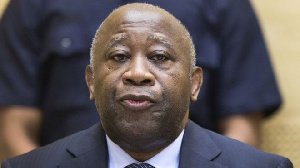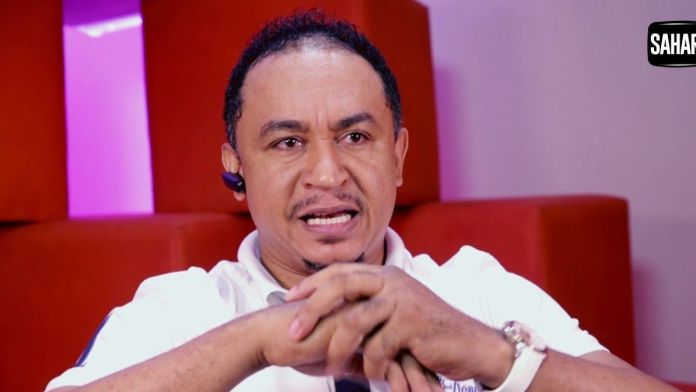Ivorian ex-leader Gbagbo supporters prepare for his return

Supporters of former Ivory Coast president Laurent Gbagbo bought t-shirts and painted the headquarters of his Ivorian Popular Front (FPI) movement, one day before he returns to the country for the first time since 2011.
“When he left, nobody wanted it. But they say he is coming. He is coming. It’s written in his destiny, not by anyone but God” said Abou Cisse, who identifies himself as a “member of the civil society” but is also the uncle of current President Alassane Ouattara.
The return of Gbagbo from Brussels to the Ivory Coast became possible in March when the International Criminal Court appeals judges upheld the acquittals of the former president and former minister Charles Ble Goude on charges of involvement in deadly post-election violence in 2010 and 2011.
Both were acquitted in 2019 of responsibility for crimes including murder, rape and persecution following disputed presidential elections in 2010, with judges saying prosecutors failed to prove their case.
“Laurent Gbagbo is naturally willing to make peace. And I think with his arrival, us – and all Africa – will take Gbagbo as an example” said Lasm Blaise, member of the FPI youth group.
The arrival of the former president is also creating expectations about the release of those imprisoned during the riots ten years ago, and reaching a real deal to reconcile the country where thousands were killed ten years ago.
“He is the one that can reconcile the Ivorians,” said Mahi Cirill, who sells t-shirts with pictures of Gbagbo outside the Front supporting the Ivorian leader.
More than 3,000 people were killed after Gbagbo refused to accept defeat by his rival, current Ivory Coast President Alassane Ouattara, in 2010.
Both men held inauguration ceremonies and a months-long standoff ensued until pro-Ouattara forces captured Gbagbo.
Gbagbo was the first former president to go on trial at the global court and his case was seen as a milestone in efforts to bring to justice even the highest-ranking leaders accused of atrocities.
Ouattara, who has been in power for nearly a decade, was re-elected last year for a controversial third term strongly contested by opposition leaders.
He maintains that the two-term limit for presidents does not apply to him because of a constitutional referendum passed in 2016.
Source: africanews.com






